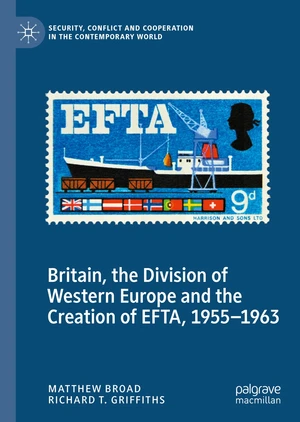This book traces the emergence of the European Free Trade Association (EFTA) from 1955 to 1963 amid the broader reshaping of the institutional architecture of post-war Europe. It considers the ill-fated Free Trade Area (FTA) proposal, the subsequent creation of EFTA, and the resulting division of Western Europe into two distinct trading blocs. At its core, the book provides an international history of a formative moment of post-war and European integration history, and explores the intense technical discussions among European states as they grappled with the prospect of deeper economic and political unity. It thus provides the first detailed analysis combining the FTA and EFTA negotiations, considering both state and non-state actors. Drawing on archives from Britain, Denmark, France, Germany, Ireland, Norway, the Netherlands, Sweden, Switzerland, and the US, as well as the records of the OEEC and EFTA, it examines the decision-making processes of those intimately involved as well as the institutional settings within which they were forced to reconcile their positions. At a key moment of contemporary European friction, the book offers a dialogue between the past and those trying to make sense of events that continue to shape Europe today.
Price history
Oct 2, 2022
€101.04

